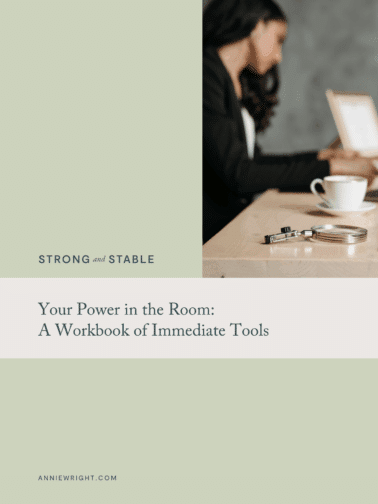Hey friend,
The questions you submitted for this month’s Q&A revealed something I see constantly with driven and ambitious women: the exhausting paradox of being professionally competent while your body still treats important moments like survival threats.
Questions about why the old fear of speaking up comes back at the most critical moments—even after years of therapy and personal growth work. About not knowing if you’re experiencing regular stress or a full trauma response. About feeling like the strategies aren’t working because fear still shows up. About watching other women seem so bold and comfortable while your body screams danger. About what happens when your fear is actually justified—when women do face real backlash for claiming authority.
Your questions weren’t asking for confidence tips or power poses. They were asking something much more fundamental: Why does my nervous system still respond this way after all the healing work I’ve done? How do I know if this fear is protecting me from real danger or trapping me in old patterns? And most urgently—does fear ever actually go away?
These are the questions that keep driven women lying awake before big presentations, negotiating with their own bodies for just enough calm to show up—because healing from relational trauma isn’t about eliminating fear. It’s about understanding that your nervous system learned its lessons long before you could even form words.
In this month’s Q&A, I address the real mechanics behind why fear lives in your bones and what actually shifts your relationship with it.
Here’s part of my response to the reader asking why fear returns even after years of personal growth work:
“Your brain’s alarm system is designed to spot danger before your conscious mind even knows what’s happening. It runs these ancient scripts—smallness equals safety—that got carved into you long before you could talk. Healing happens in layers. It is ongoing work. There is not a final destination point. Every time you feel that fear surge up and you act anyway, you’re literally building new neural pathways.”
The complete Q&A goes deeper into what I call the “three signals” framework for distinguishing between regular stress and trauma responses—duration, intensity, and the time travel effect. I also address the reality that sometimes women’s fears are justified by actual systemic barriers, and what strategic empowerment looks like when navigating genuinely dangerous environments.
These conversations are too nuanced for surface-level empowerment advice and too specific for generic anxiety management. They’re for women who understand that their fear isn’t irrational—it’s information from a nervous system that learned different lessons about safety than the ones other women might have learned.
The full 28-minute recording and complete transcript are below, including practical frameworks for working with fear as information rather than evidence of failure, and guidance on building neural pathways that support claiming space without waiting for fear to disappear first.




